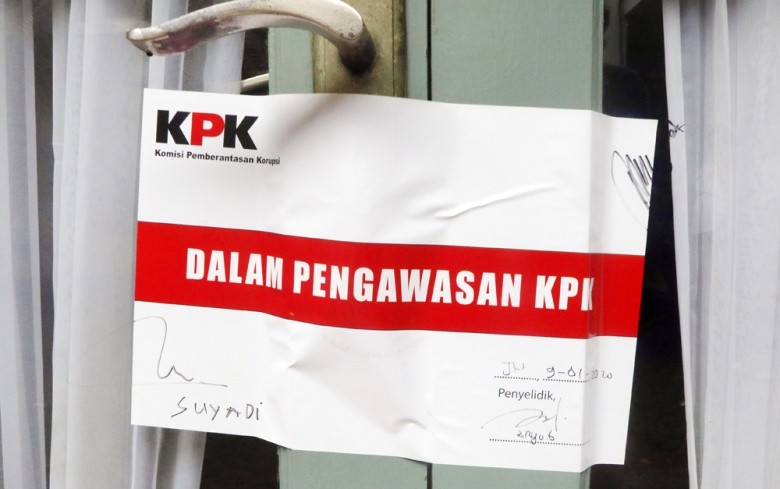Popular Reads
Top Results
Can't find what you're looking for?
View all search resultsPopular Reads
Top Results
Can't find what you're looking for?
View all search resultsWeakened KPK may face hurdles in probing social aid graft: Activists
The concerns were raised by antigraft activists over funds funneled to regions for social aid to weather the economic and social impacts of the COVID-19 pandemic. However, the new KPK Law enacted in October last year could hamper the investigation process.
Change text size
Gift Premium Articles
to Anyone
T
he Corruption Eradication Commission (KPK) may face an uphill battle in any corruption cases linked to COVID-19 aid distribution, as the agency now works under tight bureaucratic arrangements, activists have said.
The concerns were raised by antigraft activists over funds funneled to regions for social aid to weather the economic and social impacts of the COVID-19 pandemic. However, the new KPK Law enacted in October last year could hamper the investigation process.
“If the COVID-19 aid funds are misused by state officials, such as regents, mayors, governors or ministers and their respective deputies, it will be difficult because [the KPK] is very procedural it needs to report to the President in handling those cases,” Former KPK deputy chief Mochammad Jasin said during a virtual discussion held by Indonesia Corruption Watch (ICW) on Wednesday.
He warned that, with so much aid being distributed during the current national health crisis, corruption could occur, much like the corruption practices that marred the government’s village fund program that provided Rp 800 million (US$56,200) to Rp 1 billion to each of the archipelago's 73,670 villages.
“If large-scale corruption were to occur that involved regional leaders across all the provinces, regencies and cities in Indonesia, the President would never approve those investigations,” Jasin said.
“The KPK will be powerless, even if they previously warned that corruption is punishable by death during times of crisis,” he added.
Read also: KPK wants death for corruption convicts during COVID-19 outbreak
Under the new law, which sparked massive protests last year, a supervisory council set up by the President will oversee the KPK’s operations, including giving approval for wiretapping, confiscation and search warrants.
President Joko “Jokowi” Widodo previously announced that the government would expand state spending by up to Rp 405.1 trillion in the wake of the outbreak, including Rp 110 trillion for social safety net programs that would aid people affected by the outbreak.
Antigraft activists have warned that those relief budgets could be a hotbed of graft, such as corruption in medical equipment procurement or the misappropriation of social benefits.
Bivitri Susanti of the Jentera School of Law said that any indication of graft in social aid distribution should also be reported to other institutions, such as Indonesian Ombudsman regional representatives and the illegal levy eradication central task force (Saber Pungli).
“We will still need to report them to the KPK,” she said. “I’m sure they would still respond [to the reports], but I’m not sure that the follow up will be as expected when [the case involves] parties with conflicting interests that also have a strong grip on the KPK, such as law enforcement and governmental institutions,” she said in the same online discussion.
Read also: Activists warn of potential graft as govt sets aside billions for COVID-19 relief
KPK chairman Firli Bahuri issued a circular on Monday on the procedure to use the Social Affairs Ministry's Data of Social Welfare (DTKS) database and non-DTKS data in distributing the social assistance to residents to cushion the impact of COVID-19. In the circular aimed at the national and regional COVID-19 task forces, the antigraft body urged all related parties to ensure the data was accurate and upheld transparency.
“We know that DTKS is always undergoing improvements, we urge the government to continue to ensure its accuracy so that [the social aid] is on target,” Firli said in a written statement on Wednesday.










